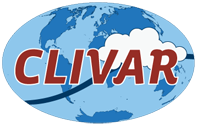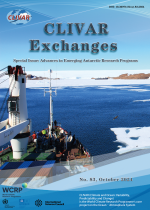Tutorial and Workshop: Future Physics for Global Atmospheric Models
Driven by increases in computing power, the treatment of small-scale physical processes in atmospheric models is at an exciting juncture. Some recent approaches (e.g., higher-order closure) are being implemented operationally, and others (e.g., machine learning) are being explored in earnest. To discuss these alternatives and future possibilities, the National Science Foundation and the National Center for Atmospheric Research are sponsoring a tutorial and workshop on advanced physical parameterizations for atmospheric models.
The tutorial will run 2.5 days (June 10-12th), and will feature lectures describing the physical parameterizations used in advanced atmosphere models, with a focus on the Community Atmosphere Model version 6, released in 2018. The tutorial will also allow attendees to explore the parameterizations through practical sessions with simplified models. Tutorial presenters will include CAM parameterization developers (Larson, Gettelman, Bacmeister) and NCAR staff.
The tutorial will be followed by a 2.5-day workshop (June 12-14th) on new and emerging topics in physical parameterization of the atmosphere for weather and climate models. Invited speakers will review current ideas and methods for parameterization, and explore new approaches including machine learning and integration with finer scale models. There will be ample time for discussion, with a goal of having synthesis and recommendations on promising avenues for future science, research, and model development. Students will be expected to attend the full 5 days.
Invited Workshop Speakers include: Peter Caldwell (LLNL), Jack Kain (NOAA), Joao Tiexeira (NASA-JPL), Falco Judt (NCAR), Tapio Schneider (Caltech), Ken Carslaw (Leeds), Andrew Ackerman (NASA-GISS), Michael Pritchard (U. Irvine)
Organizing Committee: Andrew Gettelman (NCAR), Julio Bacmeister (NCAR), Vincent Larson (Univ Wisconsin-Milwaukee), Leo Donner (NOAA-GFDL)













